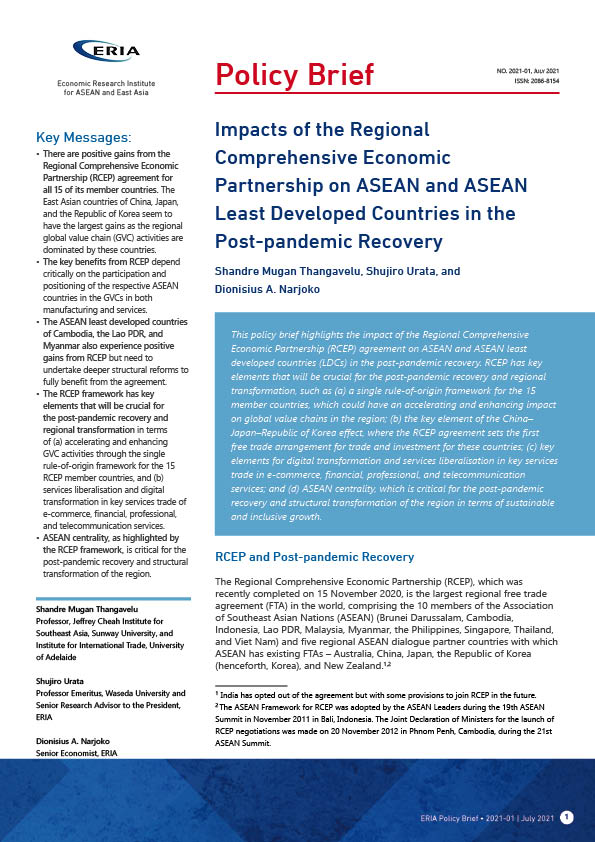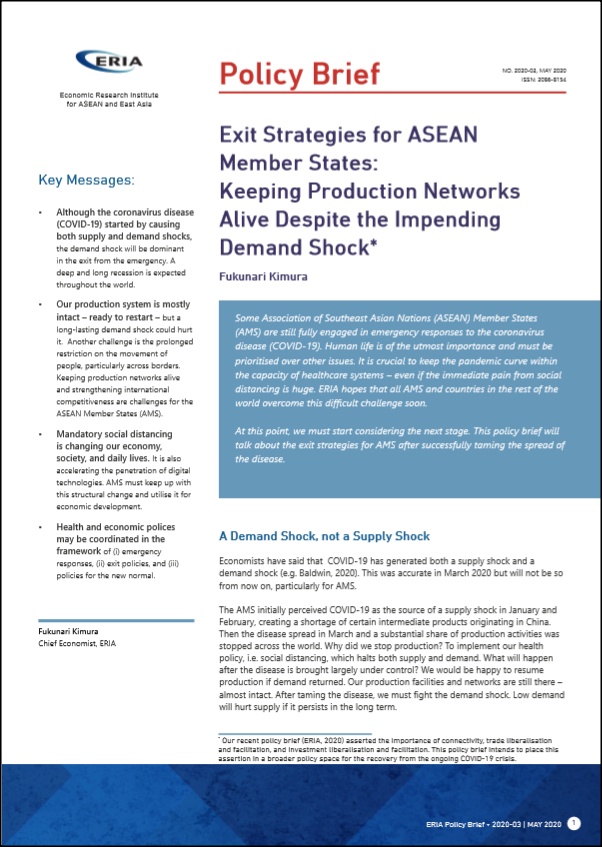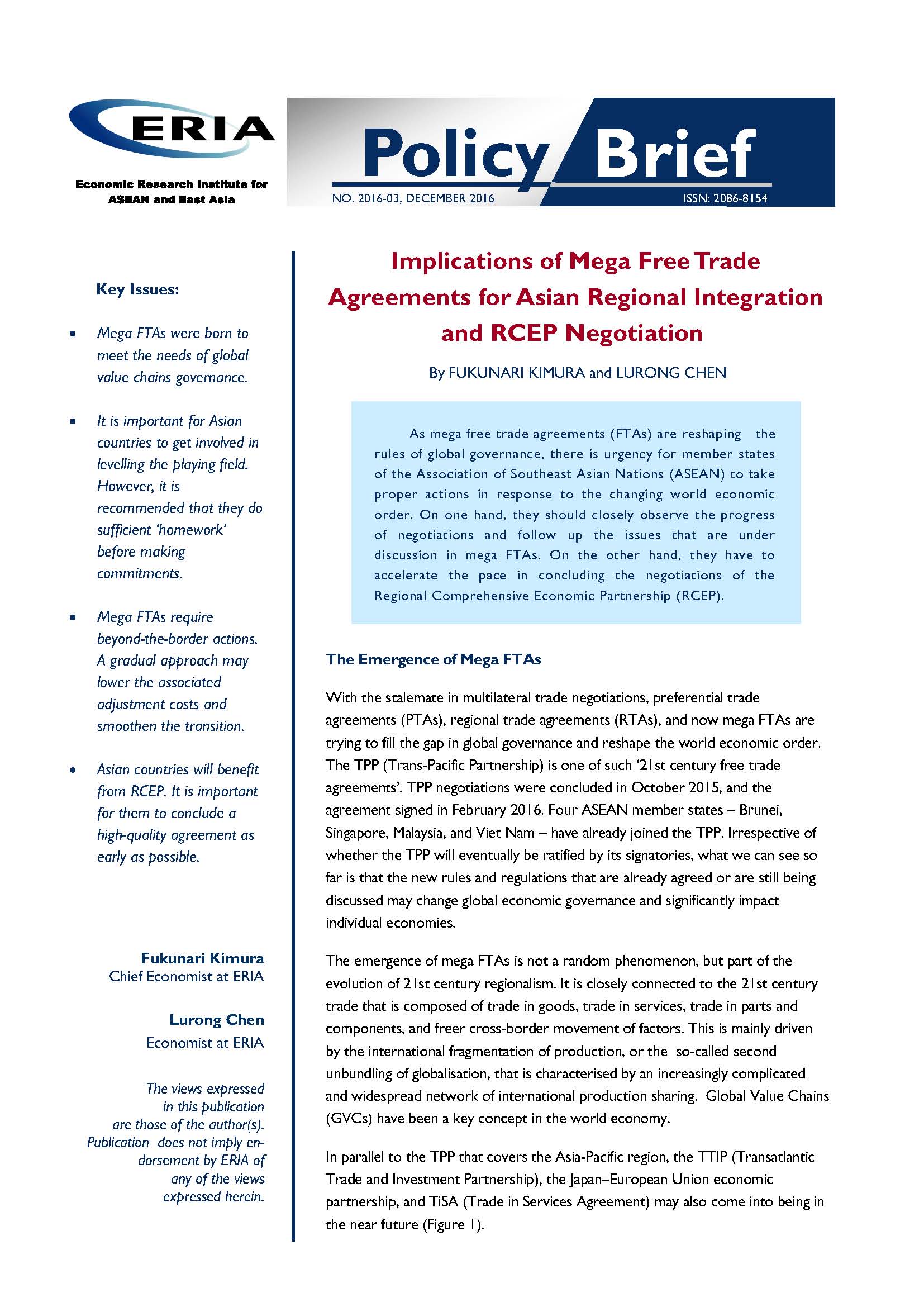Impacts of the RCEP on ASEAN and ASEAN Least Developed Countries in the Post-pandemic Recovery

Print Article:
This policy brief highlights the impact of the Regional Comprehensive Economic Partnership (RCEP) agreement on ASEAN and ASEAN least developed countries (LDCs) in the post-pandemic recovery. RCEP has key elements that will be crucial for the post-pandemic recovery and regional transformation, such as (a) a single rule-of-origin framework for the 15 member countries, which could have an accelerating and enhancing impact on global value chains in the region; (b) the key element of the China–Japan–Republic of Korea effect, where the RCEP agreement sets the first free trade arrangement for trade and investment for these countries; (c) key elements for digital transformation and services liberalisation in key services trade in e-commerce, financial, professional, and telecommunication services; and (d) ASEAN centrality, which is critical for the post-pandemic recovery and structural transformation of the region in terms of sustainable and inclusive growth.
Impacts of the RCEP on ASEAN and ASEAN Least Developed Countries in the Post-pandemic Recovery




